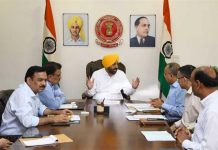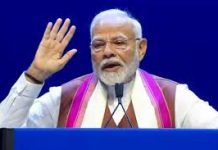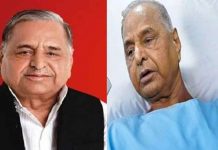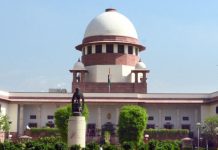Will the tabling of the Ram Pradhan Committee report affect Ajmal Kasab’s trial or is it under wraps only for political reasons? Harinder Baweja accesses the report to find the answers

DURING HIS visit to Mumbai after the terror attack, Union Home Minister P Chidambaram apologised to the citizens of the state; this itself indicated lapses from the Union government… Forget the Mumbai police, no police force of the country was prepared to face the warlike situation.”
This is what RD Pradhan, former governor and union home secretary, said in April, soon after submitting his committee’s report to the Maharashtra chief minister in April. In many ways, Pradhan’s comments reveal the tone of the report. The two-member committee had been constituted in December 2007, soon after the horrific attacks in Mumbai on 26/11 and had been expressly asked to uncover any lapses by the state government in acting on intelligence inputs provided by the centre and probe lapses by the Mumbai Police in reacting to the attacks.
The report was submitted in April but Chief Minister Ashok Chavan has steadfastly refused to table it in the assembly and has stalled it being made public – on the grounds that it could affect the trial of Ajmal Kasab, the only terrorist to be caught alive.
What does the report really contain? Is the information really sensitive or is the state government worried that the contents could become politically damaging in Maharashtra’s forthcoming assembly elections? The BJP is already in rabble-rousing mode, with Nitin Gadkari, its state President alleging that the government is attempting a “cover up,” while “the common man needs to know who is responsible for the deaths of several police officers and citizens. If there is any incriminating information on the role of ministers and bureaucrats, it should be made public.”

TEHELKA has managed to examine the controversial Pradhan report. We found that while the Committee has detailed the Mumbai Police’s fault lines — no arms, no ammunition and no coordination — it has not fixed any responsibility. Alarmingly, while it details the entire process of how the state government handled the intelligence alerts, as well as the Mumbai Police’ rigor mortis under fire, the report stops short of naming names. The only two who come up for criticism are the then Police Commissioner Hasan Gafoor and Chhagan Bhujbal, though the latter has not been named but is identified only by his designation – deputy chief minister in 2002, when an order passed by him severely delayed the procurement of arms and ammunition, crip pling the police’s modernisation process.
Let’s examine some findings of the Pradhan committee as to how Maharashtra reacted to intelligence inputs.
“The Committee found total confusion in the processing of intelligence alerts at the level of the state government and the Police”
It is well known that there were several intelligence inputs indicating a possible attack on Mumbai via the sea route. It has also been documented and established that the Taj Hotel was specifically mentioned in some of these reports. So what happened to these IB and RAW reports that ought to have been taken seriously? Why did the Mumbai Police fail to put their heads together and realise that a major attack was being planned on the city? As the committee’s report says, “an overall assessment of the intelligence reports would have revealed a strong indication that some major terrorist action was being planned against Mumbai city, had the essence of these intelligence alerts been analysed.”
The answer to why the intelligence was not ‘analysed’ — mildly put — is shocking:
Two senior officers – Additional Chief Secretary (Home) and the Principal Secretary (Home) – told the Pradhan committee in writing that they had NOT (emphasis needed) received any intelligence alerts from the Ministry of Home Affairs












